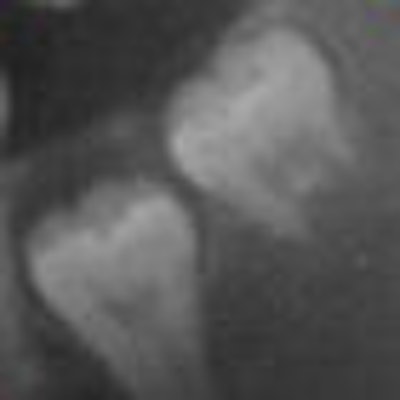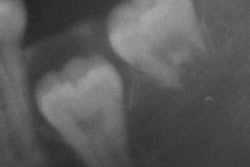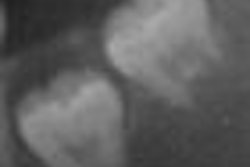
A review in the Cochrane Library (June 13, 2012) has found insufficient evidence to support or refute the necessity of routine prophylactic removal of impacted third molars in adults.
"Watchful monitoring of asymptomatic third-molar teeth may be a more prudent strategy," the reviewers concluded.
Six authors, led by Theodorus Mettes of Radboud University Nijmegen Medical Center, combed through several databases -- Cochrane Oral Health Group's Trial Register (to 30 March 2012), the Cochrane Central Register of Controlled Trials, Medline via Ovid (1950 to 30 March 2012), and Embase via Ovid (1980 to 30 March 2012) -- with no restrictions on language or the date of publication.
Their goal was to determine whether there was evidence in the literature to support the removal of asymptomatic third molars. To do this, they sought randomized controlled trials (RCTs) involving adults and adolescents that compared the impact of the removal asymptomatic third molars with retention on quality of life but found none.
Limited findings
The reviewers found only a single trial that compared removal with retention. They concluded that there was no difference in late lower incisor crowning five years after either treatment option.
"The idea that these teeth possess the force to cause all the teeth in front of them, with roots imbedded in bone like the stakes of a picket fence, to become crooked and overlap, is so obviously absurd that one can only wonder how in the world anyone ever took it seriously," Jay Friedman, DDS, MPH, an outspoken critic of prophylactic third-molar removal, wrote in an email to DrBicuspid.com. "This flawed update will be used by the oral surgeons to justify continuation of prophylactic extractions, even as that was not its intention."
The Cochrane reports are "virtually addicted" to RCT research, he added. "Not everything can be a randomly controlled study," he stated.
Dr. Friedman also took issue with the reviewers' statement that "in most developed countries prophylactic removal of trouble-free wisdom teeth, either impacted or fully erupted, has long been considered as 'appropriate care' and is a very common procedure."
In addition, while he agreed with the reviewers' conclusion that watchful monitoring may be a more prudent strategy, he argued that they should have been more assertive in their language.
"By concluding that there is no RCT evidence to support or refute prophylactic extractions, they allow that there might be equal credence to removal or retention," Dr. Friedman wrote. "But in the absence of evidence to support surgery, the consensus among prudent practitioners is not to perform the surgery, not to leave it up to the whim of the surgeon. ... The hedge of a 'maybe' diminishes the strength of what should be a less equivocating statement based on what we do know."



















